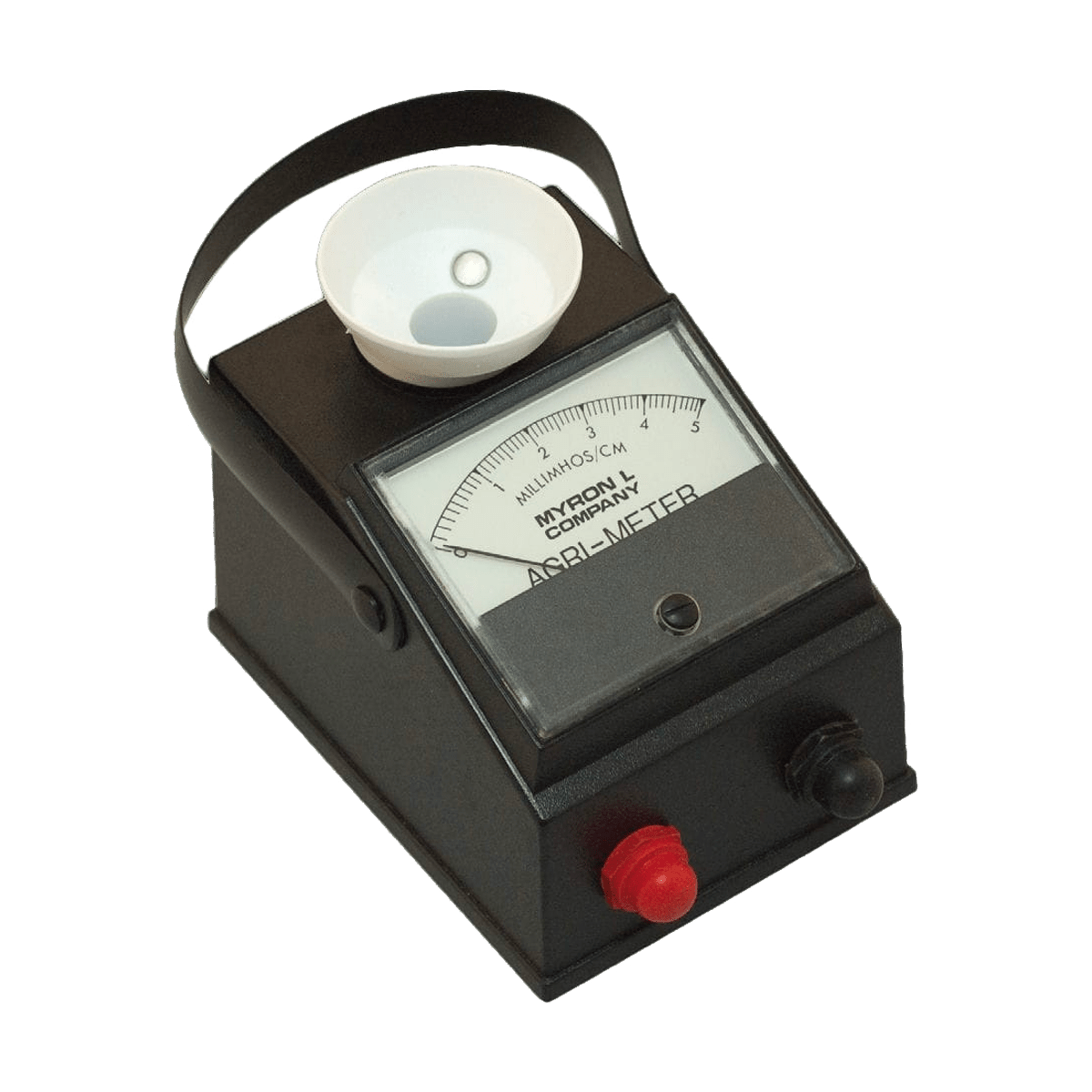
Close


Plant health can be greatly affected by pH (acidic or basic), salinity (soluble salts), and alkalinity, yet these factors are often ignored by growers. It is easy to test for these three important parameters using a portable Myron L® AGRI-METER.
Optimum soil pH is essential for obtaining maximum efficiency from fertilizers and herbicides.
This is especially true for artificial growing media which, without buffering capability, are much more pH sensitive than natural soil. In addition, the pH of artificial soils can vary greatly when new, and must be adjusted (leached) before use.
Dissolved salts (salinity) in soil must also be monitored to guarantee healthy plants. Salt build-up in soil can be due to high TDS (total dissolved solids) in water, excess fertilizer, or poor drainage. Each plant has its own salinity tolerance level. If excessive salts accumulate in the soil, roots will take in little or no soil solution, resulting in reduced plant growth and quality.
Using a Myron L® Model AG6/PH for checking soil salinity and pH is easy. Simply mix one part soil with two parts pure water. Some organic media, such as peat moss, need a 5:1 water:soil dilution ratio. Only a heaping tablespoon of soil is required. Agitate container vigorously. Let settle for 45-60 minutes and decant the water into the instrument cell cup. Push buttons to read directly in millimhos/ conductivity (salinity) and soil pH.
Regular testing of conductivity ensures that fertilizer solutions will contain the optimum level of salinity for maximum plant health and growth. If a fertilizer injection system is used, it can be easily checked with an AGRI-METER by taking a sample solution as it comes out of the end of the hose or “spaghetti” irrigation tubes. Proper adjustment of the fertilizer injector can prevent these common problems: over or under feeding, plant damage and fertilizer waste.
Water pH can vary greatly from month to month because of rainfall effects on the aquifer. Irrigation water, if high in soluble salts, can increase soil salinity causing plant damage. AGRI-METER tests water pH and salinity easily and quickly, and readings are given directly in millimhos/conductivity. The correct pH of water used in pesticide solutions is also important in order to ensure maximum effectiveness and prevent pesticide “break down”.
Alkalinity tests are critical to proper pH adjustments of water and floral preservative solutions.
Both AG-5 and AG6/pH AGRI-METERS are calibrated in millimhos, the term most widely used by growers to express electrical conductivity. Some charts may read in other units called micromhos. However, since one millimho equals 1,000 micromhos, conversion is easy. Parts per million (ppm) is also sometimes used. Conductivity/ ppm fertilizer concentration tables can be obtained from your supplier, consultant, or university advisor.
| Conductivity Range: | 0-5 millimhos |
| pH Range: | 2-12 pH (AG6/PH only) |
| Accuracy: | pH: ±0.2 pH units Conductivity: ±2% of full scale |
| Repeatability: | ±1% |
| Temperature Compensation: | Automatic (to 25°C) for Conductivity samples between 50-160°F/10-71°C |
| Electrodes (Built-in): | pH: KCI gel-filled; field replaceable Conductivity: Never need replatinizing or replacement |
| Calibration: | Easy finger adjustment of pH Zero and Gain (slope) and Conductivity |
| Circuitry: | Solid State sealed against moisture |
| Power: | One 9-volt battery supplied |
| Battery Life: | Approximately one year or 2,000 tests |
| Case: | Heavy gauge textured ABS |
| Cell Cup: | Chip/crack resistant polyethylene |
| Dimensions: | 3.4 W x 4.5 D x 4.0 H in./86 x 114 x 102 mm |
| Weight: | Less than 1 lb./0,45 kg |
